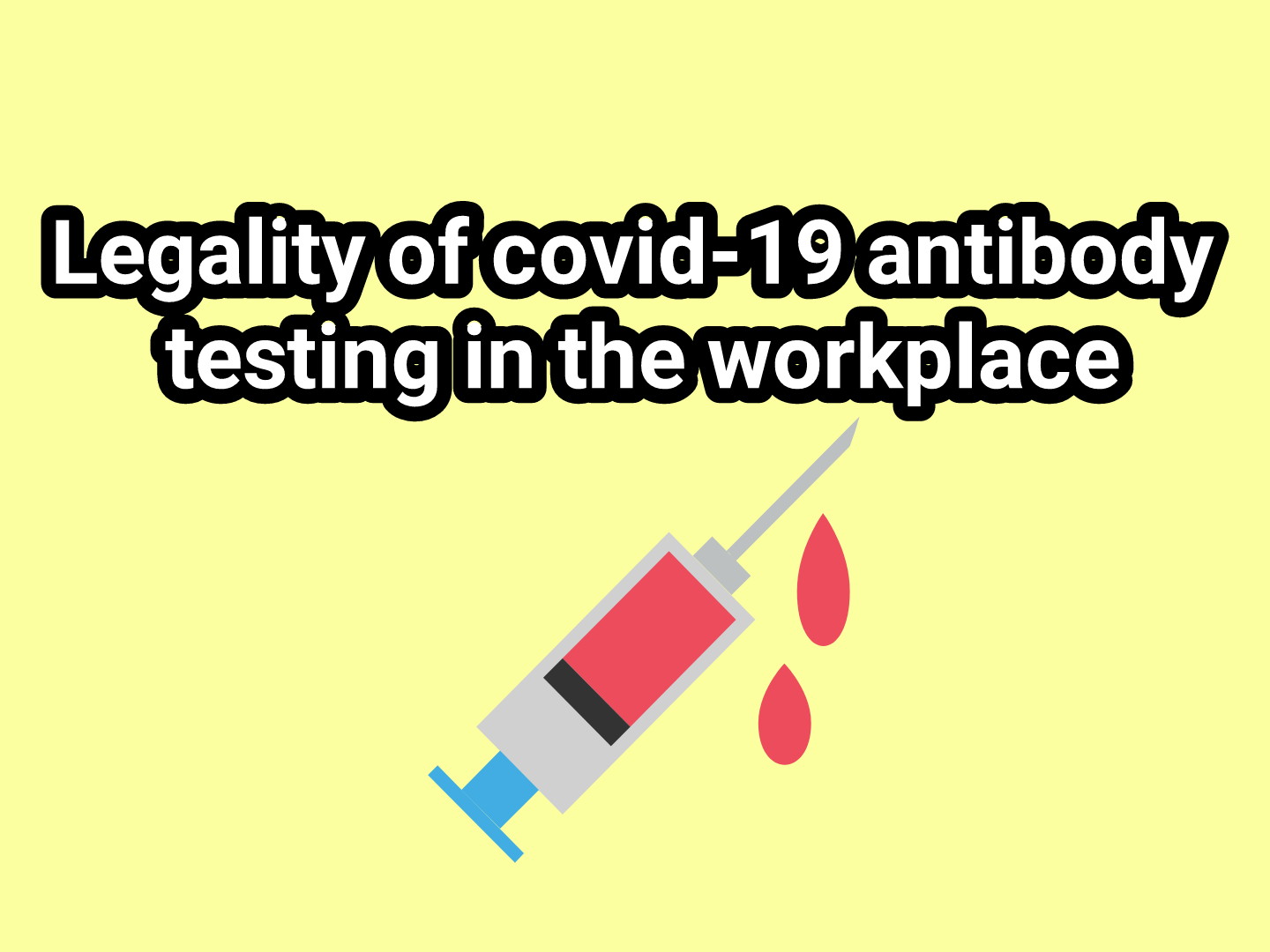- Free Consultation: (631) 352-0050 Tap Here to Call Us
Can Employers Require That Employees Take Covid-19 Antibody Tests?

As the country begins to re-open from the coronavirus shutdown, governments and employers are working to implement procedures to protect workers, patrons, and citizens generally, from the continued threat of covid-19. Face masks and temperature checks are likely to be universally accepted requirements for businesses and workplaces. But, antibody testing is also becoming widespread and was talked about early on in the re-opening discussion as an important tool because of the possibility that it could reveal individuals who have immunity.
But, the issue of immunity has been questioned more recently. Indeed, experts have expressed uncertainty as to whether a person exposed to covid-19 can become sick with the virus again. Some reports from overseas have supported the uncertainty by claiming that individuals who recovered from coronavirus, became sick again. Further, antibody testing is more invasive than merely taking temperatures by infrared thermometer or requiring a person to wear a mask externally.
So, can employers require that employees undergo antibody testing? Antibody testing (and even temperature checks) will be considered a medical examination under the Americans with Disabilities Act (ADA). The EEOC, which is responsible for guidance under the ADA, allows temperature checks to be taken of employees before they enter the workplace because of the severe risk posed by the spread of covid-19. The EEOC relies on the ADA’s permissible use of medical exams when the exam is job related and consistent with a business necessity.
The EEOC has not yet expressly issued guidance on whether employers may require antibody tests (as of 4/30/20). There are reasons to suspect that mandatory antibody testing would not, right now, be lawful. As noted above, a positive antibody test may not equate to immunity. So, if immunity is the basis for requiring antibody testing, the reasonableness of such requirement does not pass muster. Further, the EEOC’s express allowance of temperature checks and other tests which may reveal whether a person is actively infected with coronavirus is obviously different than an antibody test which reveals whether a person was infected at some other time. In other words, a test which confirms a person is currently infected shows that the person is currently a risk, whereas an antibody test may show only that a person cannot become infected again, and even that is not quite certain.
Moreover, the EEOC requires that any workplace covid-19 testing be performed with tests which are accurate and reliable. Though we are not medical professionals, the consensus seems to suggests that, again at the time of this writing, antibody testing has not yet been deemed accurate and reliable.
Even if an employer makes a determination on its own that antibody testing is lawful and decides to require its employees to get tested, employees may have lawful objections to a required test. Laws allow for reasonable accommodations to be made for employees with disabilities or sincerely held religious beliefs. Employees who may be subject to mandatory antibody testing and who want to invoke a religious or disability related objection, should speak to an employment lawyer, first.
Employees who are concerned about an invasive testing procedure revealing other medical information about them, may rest easy. Testing must relate to the coronavirus and employers are prohibited from using the testing as a fishing expedition into the medical conditions of their employees. Similarly, employers are prohibited from using an employee’s genetic information.
Healthcare professionals may be in a weaker position to challenge covid-19 antibody testing. Indeed, many healthcare professionals are already subject to testing which may reveal tuberculosis and the efficacy of hepatitis vaccines. Covid-19 is new and people often react to new requirements with caution, but when we look at other areas of medical testing required in workplaces (and which are lawful) covid-19 testing may be no different.
Nonetheless, as employment lawyers, we appreciate the apprehension employees may have concerning invasive covid-19 antibody testing requirements in the workplace. The law is evolving on almost a daily basis. Continue to monitor our blog and social media channels to stay abreast of the latest coronavirus changes in the law.
Of course, employees should contact us directly to discuss concerns about how covid-19 is impacting specific work situations or if you have questions about workplace testing or other requirements. Our employment lawyers are studying the issues related to covid-19 and workplace rules. We are available at 631-352-0050. Our website is at http://linycemploymentlaw.com.
Legality of covid-19 antibody testing








